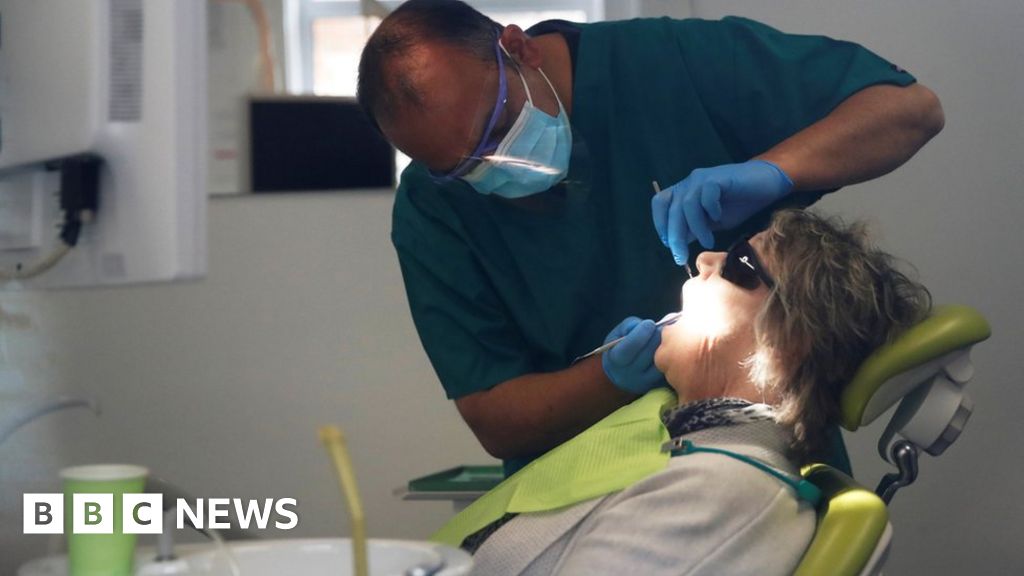
Prices started to rise more quickly in July as the UK economy opened up after lockdown and measures to contain the virus added to business costs.
The annual inflation rate rose to 1% in July, up from 0.6% in June, official figures showed.
The jump in the Consumer Prices Index (CPI) was bigger than expected as firms such as hairdressers and dentists adjusted their practices.
Another key factor was the absence of traditional summer sales.
The Office for National Statistics said clothing and footwear prices were the biggest contributor to the rise.
In most years retailers slash clothes prices between June and July to clear out their summer ranges in preparation for autumn.
Many shops were not able to open until July, when lockdown for non-essential retailers was eased, and some retailers had already brought forward discounts to attract consumers shopping online from home.
Haircuts
When businesses were able to welcome shoppers back in July many faced higher costs associated with social distancing and enhanced cleaning. Those providing services saw fewer customers.
As a result, hairdressing and personal grooming prices jumped compared with the previous month, the ONS said, with men's haircuts costing 6.1% more and women's 4.5% more.
Private healthcare services cost 1% more in July than in June, the ONS said, as physiotherapists and dentists made their workplaces Covid-secure.
Transport costs also rebounded after falling sharply during lockdown.
"Inflation has risen, in part, due to the largest monthly pump price increase in nearly a decade, as international oil prices rose from their lows earlier this year," said Jonathan Athow, deputy national statistician for economic statistics at the ONS.
The cost of food and non-alcoholic drinks fell slightly between June and July, helping to offset some of the price rises elsewhere.
'It was a necessity'
Kaboodles in Torquay, Devon, is fortunate in having enough space to spread its hairdressers over three floors, allowing them all to get back to work.
But there have been extra costs, says company director Alex Walker, including acrylic screens between wash basins and at reception, and PPE for staff. Plastic visors cost between £5 and £15 each and masks are 30p each.
Kaboodles has an eco-friendly ethos so they re-use items where possible, but there's a certain amount of wear and tear and they have to ensure they meet strict Covid-19 guidelines.
Most importantly appointment times have been extended by 15 minutes to allow for extra sanitising of equipment and the work area, reducing the number of haircuts they can fit in.
"You lose two to three clients a day, so it's quite significant," says Mr Walker.
As a result Kaboodle's prices have risen: for example a standard wash, cut and blow-dry is up from £35 to £40.
"For us it was a necessity," he says. "We wanted to look at the immediate but also the long-term future of the business. We have a big team of 18 staff. We haven't had to make anyone redundant or keep anyone on furlough. Everyone is back working. That was my number one objective."
Distortions
July's figures are used to calculate rail fare increases, using a different inflation measure, the Retail Prices Index (RPI). As a result, railway season ticket holders and commuters will see a 1.6% rise in fares from January.
Inflation is calculated by looking at a "basket" of commonly purchased goods and comparing how much they cost now to last month and to the same time last year.
As a result of the pandemic the ONS said it was unable to identify prices for many of the 720 items it usually monitored.
In July the ONS said prices for only 12 items were still unavailable, reflecting parts of the economy still unable to operate normally including cruises, live music, theatre, swimming pool admission, and soft play sessions.
Ed Monk, at Fidelity International, said the inflation figures showed that economic life was "getting back to normal". However he said he didn't expect inflation to continue rising strongly, pointing to Bank of England forecasts that prices could fall in August.
"Looking forward, there is the possibility of negative inflation, or record lows, as VAT cuts and Rishi's 'eat out to help out' scheme distorts actual consumer spending levels.
"On the other hand, the government's increased budget deficit could lay the foundations for increasing inflation in the coming months. A potentially worrying sign with consumer confidence still struggling and wage growth negative."
https://news.google.com/__i/rss/rd/articles/CBMiLGh0dHBzOi8vd3d3LmJiYy5jby51ay9uZXdzL2J1c2luZXNzLTUzODMzNjUz0gEwaHR0cHM6Ly93d3cuYmJjLmNvLnVrL25ld3MvYW1wL2J1c2luZXNzLTUzODMzNjUz?oc=5
2020-08-19 13:40:44Z
52781006806545
Tidak ada komentar:
Posting Komentar